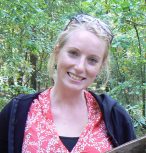DNA reveals the past and future of coral reefs
New DNA techniques are being used to understand how coral reacted to the end of the last ice age in order to better predict how they will cope with current changes to the climate. James Cook Univer

From 2005 to 2022, the main node of the ARC Centre of Excellence for Coral Reef Studies was headquartered at James Cook University in Townsville, Queensland (Australia)








Abstract: Globally, management of common-pool natural resources (CPRs) has shifted from centralised government approaches to hybrid multi-scale models of governance involving state and civil society actors (e.g. local communities and non-government organisations). These collaborative approaches to management, which include co-management and community-based management, are suggested to help ensure management initiatives are reflective of local conditions, legitimate to local users, and better able to deal with social-ecological processes that operate beyond the local scale. However, the success of collaborative management of CPRs is highly variable, and critical questions remain in understanding the links between characteristics of these forms of management, contextual conditions, and socioeconomic and environmental outcomes. In this seminar, I will present my research based in Indonesia that examines the factors that influence opportunities for collaborative management of marine CPRs, and the multiple socioeconomic outcomes of such initiatives. First, using an integrated conservation and development project as a case study, I evaluate the impacts of community-based management of marine protected areas (MPAs) on multiple dimensions of poverty, including whether those impacts are equitable according to social subgroups. Second, I examine how multi-scale socioeconomic and institutional factors are related to participation in community-based management of MPAs. Finally, I describe how I envision my current and future research can contribute to addressing key outstanding questions in the theory and practice of common-pool resource management.
Biography: Georgina’s research interests lie broadly in understanding the socioeconomic factors that influence opportunities for collaborative management of marine common-pool natural resources, and the multiple outcomes of such initiatives. She takes an interdisciplinary approach to her research, drawing on theories and methods from a range of disciplines including common-pool resource theory, social psychology, conservation planning, and behavioural economics. Georgina has undertaken most of her research in the context of coral reef management in the Asia-Pacific region, including in Indonesia, Fiji and the Philippines, where she has worked closely with resource managers. Georgina earned her BSc in Marine Science from the University of Tasmania and recently finished her PhD at the ARC Centre of Excellence for Coral Reef Studies, where she is currently a postdoctoral research fellow.
New DNA techniques are being used to understand how coral reacted to the end of the last ice age in order to better predict how they will cope with current changes to the climate. James Cook Univer
A new study on the effects of climate change in five tropical countries has found fisheries are in more trouble than agriculture, and poor people are in the most danger. Distinguished Profess
James Cook University researchers have found brightly coloured fish are becoming increasingly rare as coral declines, with the phenomenon likely to get worse in the future. Christopher Hemingson, a
Researchers working with stakeholders in the Great Barrier Reef region have come up with ideas on how groups responsible for looking after the reef can operate more effectively when the next bleaching
Abstract: As marine species adapt to climate change, their heat tolerance will likely be under strong selection. Individual variation in heat tolerance and its heritability underpin the potential fo
Abstract: The Reef Ecology Lab in KAUST’s Red Sea Research Center explores many aspects of movement ecology of marine organisms, ranging from adult migrations to intergenerational larval dispersal
Abstract: Macroalgal meadows are a prominent, yet often maligned component of the tropical seascape. Our work at Ningaloo reef in WA demonstrate that canopy forming macroalgae provide habitat for ad
Abstract: Sharks are generally perceived as strong and fearsome animals. With fossils dating back at least 420 million years, sharks are not only majestic top predators but they also outlived dinosa
Abstract: Connectivity plays a vital role in many ecosystems through its effects on fundamental ecological and evolutionary processes. Its consequences for populations and metapopulations have been
Abstract: Evolution of many eukaryotic organisms is affected by interactions with microbes. Microbial symbioses can ultimately reflect host’s diet, habitat range, and even body shape. However, how
Abstract: The past few years have seen unprecedented coral bleaching and mortality on the Great Barrier Reef (GBR) but the consequences of this on biodiversity are not yet known. This talk will expl